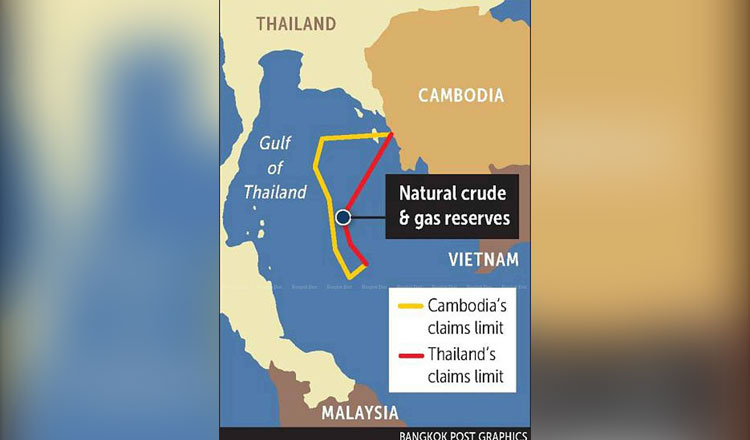Cambodia, Thailand to reopen talks on OCA petroleum riches
Thailand is scheduled to hold talks with Cambodia over a 26,000 sq kilometres overlapping claims area (OCA) estimated to hold up to 500 million barrels of oil and gas deposits under the sea floor.
The move comes following efforts by the two countries to work together to develop new energy sources and this involves first ironing out the territorial dispute.
Thailand’s deputy prime minister and energy minister Supattanapong Punmeechaow said on Tuesday that the joint venture development was expected to form part of the government’s long-term policy.
The Thai government wants to both encourage people to be self-reliant in clean energy as well as seek new sources of energy by calling bids for petroleum concessions and holding energy talks with neighbouring countries such as Cambodia.

“In seeking new energy sources, particularly in neighbouring countries with potential energy sources such as Cambodia, if the talks start soon and finish early, we hope we will soon be able to make use of these resources and for the next 10 years, as all infrastructure is now available to the benefit of both Thailand and Cambodia,” Supattanapong said.
He added that the government has set up a committee to look into ways to jointly develop the overlapping claims area and the Foreign Affairs Ministry will lead negotiations with Cambodia on this matter.
“But currently, there are some details that need to be studied. For example, the Foreign Ministry is still concerned about some border demarcations and will have to find solutions and explain the matter to the public. But the sooner the economic cooperation begins, the better,” Supattanapong explained.
The OCA overlaps the Cambodian and Thai borders in the gulf and has been a point of contention since the early 1970s.
A Memorandum of Understanding to jointly explore the OCA was signed in 2001 but was later shelved by the Thai government in 2009. Calls to rekindle negotiations on oil and gas development in the region have re-emerged time and again with varying degrees of success. Bangkok Post


 English
English




